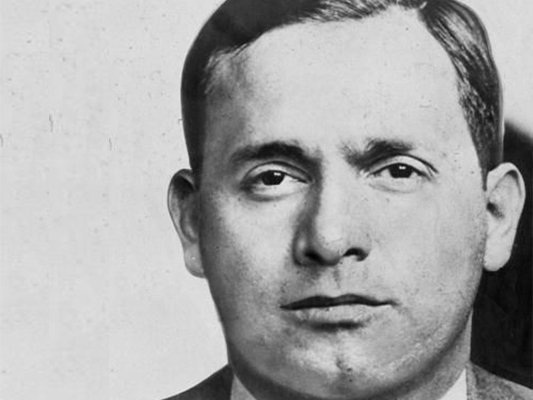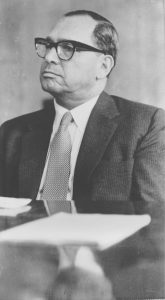Tommy Lucchese

Born: December 1, 1899, Palermo, Sicily
Died: July 13, 1967, Long Island, New York
Nicknames: Three-Finger Brown
Associates: Charles “Lucky” Luciano, Tommy Reina, Tommy Gagliano, Carlo Gambino
One of the “founding fathers” of the American Mafia, Tommy Lucchese was a well-connected and widely respected godfather whose name today remains on the marquee of one of New York’s Five Families. Smart, savvy and fearless, he made his name with his muscle during Prohibition and kept power through the mid-20th century with cautious maneuvering, a strong head for business and gangland political acumen.
Born in Sicily, he and his family came to the United States when he was 12 years old and settled in New York’s East Harlem neighborhood. As a teenager he worked in a factory until an industrial accident cut off part of his right hand, leading to his eventually earning the underworld nickname “Three-Finger Tommy Brown,” a reference to his handicap and Hall of Fame pitcher Mordecai “Three Finger” Brown, one of the more popular pro athletes of that era.
By his 20s, Lucchese had joined forces with fellow future Mob dignitary Charles “Lucky” Luciano in Luciano’s 107th Street Gang, working under the auspices and protection of Prohibition-era Mafia lord Tommy Reina. Lucchese’s early front business was a window-washing company. In 1921, he was convicted in a Long Island, New York, courtroom for auto theft and did a little more than a year in state prison. He’d be arrested twice more before the end of the decade, once in 1927 for receiving stolen goods and then in 1928 for murder, but he wasn’t convicted in either case.
All the while, Lucchese, Luciano and Reina were aligned with powerful Brooklyn bootlegging boss Giuseppe “Joe the Boss” Masseria, the biggest racketeer in the city as Prohibition wound down in the early ’30s. Lucchese and Luciano specifically forged strong ties with legendary Jewish crime czars Arnold “The Brain” Rothstein and Meyer Lansky.
In 1930, Masseria went to war with upstart don Salvatore Maranzano. Masseria was murdered on April 15, 1931, when Luciano, Lucchese and a contingent of other local young Mob heavyweights betrayed him and teamed with Maranzano. Then they double-crossed Maranzano that September, killing him in his Manhattan office. They seized control of the New York underworld for themselves and went on to establish the modern-day American Mafia, led by the Five Families of New York and the Commission, a nationwide Mob board of directors.

The crime family that bears Lucchese’s name today was first the Gagliano family, as Luciano named Tommy Gagliano, another Tommy Reina disciple, as the syndicate’s inaugural boss. Lucchese slid into the No. 2 seat and loyally served as Gagliano’s underboss for the ensuing two decades.
After Prohibition was repealed in 1933, Lucchese made his reputation as the preeminent garment district racketeer of his day, ruling over the lucrative textile trade with an iron fist, using the highly feared Murder Inc. enforcement crew for his muscle to place a vise grip on the industry. When Gagliano died of natural causes in 1951, Lucchese took his place as boss, and the crime family assumed his name. He was a politically connected godfather, content with keeping a low profile, making money and accumulating considerable clout in the shadows while avoiding headlines in his more than 30 years as Mob royalty.
Wisely, one of the first things Lucchese did as newly tapped don was to build a relationship with Carlo Gambino, then underboss of the Anastasia crime family that would soon sport his name on the proverbial letterhead. Lucchese married his daughter off to Gambino’s son. The Gambino and Lucchese syndicates would share most of the vast and profitable set of rackets being run out of the Idlewild and John F. Kennedy airports in Queens in the 1960 and ’70s. The Lucchese crime family’s exploits at the airport were depicted in the Martin Scorcese film classic Goodfellas.
At the end, it wasn’t the street that did in Tommy Lucchese, it was his health. He died of a brain tumor on July 13, 1967, in his own bed at his Long Island estate.
The Lucchese crime family continues to operate today in New York City, with involvement in traditional rackets such as illegal gambling, labor racketeering and extortion.




